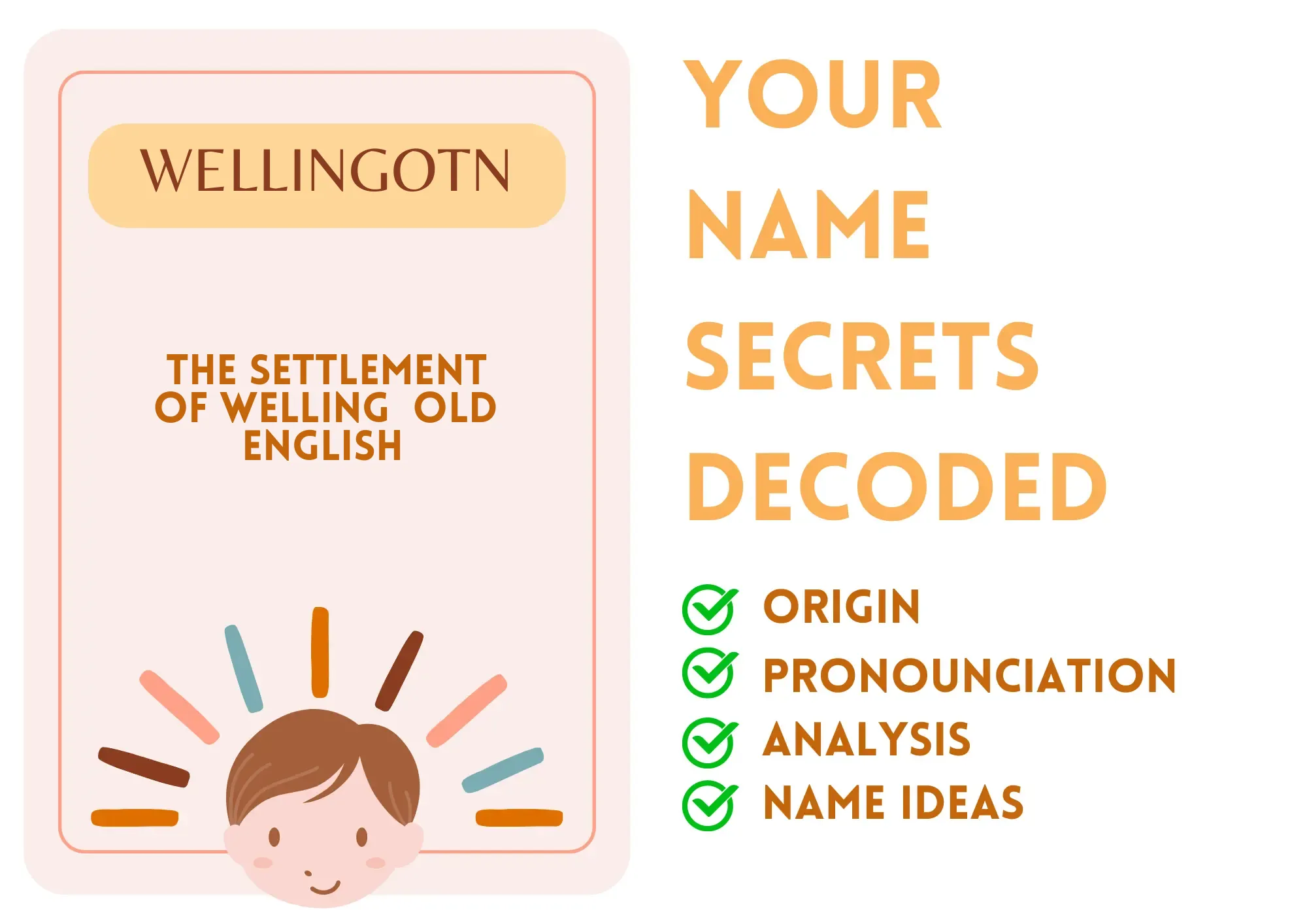
Wellingotn
Wellington is a distinguished name with historical significance, derived from Old English roots, primarily meaning 'the settlement of a man named Welling.' This name carries an air of nobility and leadership, largely due to its association with prominent historical figures like the Duke of Wellington, a pivotal figure in British history known for his military strategies against Napoleon.
The name Wellington is predominantly used as a masculine name, yet can be considered unisex in contemporary contexts. It is recognizable across various cultures, particularly in English-speaking countries. The historical and cultural significance of this name lends it a sense of gravitas and respect amongst admirers.
Wellington is often portrayed in literature and media, noted for characters embodying bravery and leadership qualities. The name invokes feelings of strength, stability, and prestige, making it a favorable choice for parents looking for a strong, assertive name for their child.
Basic Information
Gender: Boy
Sounds Like: WELL-ing-tun
Pronunciation Explanation: The emphasis is on the first syllable 'WELL', followed by a softer 'ing' and ending with 'tun,' rhyming with 'fun.'
Summary and Meaning
Meaning: the settlement of Welling (Old English)
Origin: Wellington has English origins, deriving from Old English components meaning 'settlement' and a personal name Welling.
Usage: Traditionally masculine, Wellington is largely recognized as a male name, though it may have unisex appeal.
Name Number (Chaldean)
Name Number (Pythagorean)
Popularity (Global Rank)
Overall: 421414
Boys: 72681
Most Popular in
Religious and Cultural Significance
Religion: Christian
Background: The name has no specific religious connotations but is common in Christian contexts, especially in English-speaking regions.
Cultural Significance: Wellington implies qualities of leadership and respect, associated with historical military and political figures, lending it cultural weight.
Historical Significance: Historically, Wellington is most famously associated with Arthur Wellesley, the Duke of Wellington, who defeated Napoleon at the Battle of Waterloo in 1815, making it a name representing victory and leadership in British history.
Popular Culture
Literature and Mythology: Wellington is often featured in literature as a strong character name, symbolizing determination and strength.
Movies and Television: Characters named Wellington might appear in various films, typically as leaders or wise figures, echoing the historical connotations associated with the name.
Feelings and Perceptions
Perception: Wellington is generally perceived positively, associated with strength, stability, and historical importance.
Positive Feelings: Noble, strong, respected, historic, unique.
Negative Feelings: Some may view it as formal or old-fashioned.
Practical Considerations
Ease of Writing and Calling: The name Wellington requires more effort to write and pronounce than simpler names, consisting of nine letters and three syllables, yet it is distinctive and memorable.
Common Typos and Misspellings: Wellinton,Wellngton,Welingston,Welington
Common Nicknames: Welly,Gus,Wells
Wellingotn Popularity
Wellingotn Usage and Popularity By Country
| Country | Rank (Overall) |
|---|---|
| Brazil | 52412 |
| United States | 539518 |
Wellingotn Usage and Popularity By City
| City | Rank (Overall) |
|---|
Compatibility Analysis
Famous Persons Named Wellingotn
No results found for Wellingotn.
Related Names
Similar Sounding Names:
Winston,Hollington,Singleton